Find details of our infrastructure in place to support the translational development of diagnostic tools and interventional tools.
- UCL Pathogen Genomics Unit (PGU), based at Zayed Centre for Research
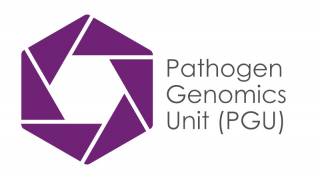
What the facility is
The PGU offers a wide variety of Next Generation Sequencing (NGS) solutions using automated systems for high throughput sequencing of pathogens, from both cultures and clinical samples, for research and clinical applications.What we are offering
The PGU will develop and support new short and long read NGS methodologies, pathogen sequencing and transcriptomic technologies, from test development to large scale pathogen genomics, and provide support for the development of point-of-care tests. The PGU has both Illumina (short read) and Oxford Nanopore Technologies (long read) sequencing platforms which can be utilised for a variety of research applications including whole transcriptome sequencing (RNA-Seq), whole genome sequencing for both viral and bacterial genomes, and target enrichment methodologies (SureSelect). Help and support is available for the planning of AMR projects and studies.Bioinformatic analysis
Bioinformatics support is available to work with researchers to develop research projects, new tools and to provide data analysis, including setting up sequence analysis pipelines (identification of resistance gene alleles, ST's, virulence genes, plasmic replicaon types etc).How to access
Please visit the Pathogen Genomics Unit website contact Dr Rachel Williams (rachel.williams@ucl.ac.uk) directly to discuss your project and its requirements.- Clinical Sequencing Facility, based at Great Ormond Street Hospital (GOSH)
Part of Laboratory Medicine at GOSH 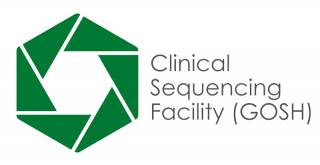
What the facility is
Clinical diagnostic laboratories offering state-of-the-art pathogen genome sequencing and analysis for clinical application.What we are offering
- Library preparation and NGS of whole pathogen genomes and amplicons
- RNA and DNA meta genomic sequencing for pathogen detection in a range of clinical sample types
- Sequencing analysis and bioinformatics
We use the NGS STARLET (Hamilton) workstation which enables us to automate library preparation. This platform can generate libraries from amplicon and isolates. The GOSH CLinical Sequencing Facility is able to undertake sequencing of any bacterial isolates, amplicon sequencing, and RNA and DNA metagenomic for pathogen detection. The facility is alos equipt with the Illumina MiniSeq, MiSeq and NextSeq platforms.
The facility can analyse NGS data from whole pathogen genome sequencing and meta genomic sequencing, providing reports that are tailored to the needs of the service user. We will also provide users with the raw sequence data files if required.
How to access
To use the service please email Kathryn Harris kathryn.harris@gosh.nhs.uk or Elaine Cloutman-Green elaine.cloutman-green@gosh.nhs.uk who will contact you to:- Disscuss you exact requirements, including, importantly, your starting material, library preparation and sequencing requirements
- Generate a quite based on your request
- Send you the sample submission protocol and forms
- Arrange when and how to submit samples
- Clinical Sequencing Facility, based at University College London Hospital (UCLH)/ Health Services Laboratories (HSL)
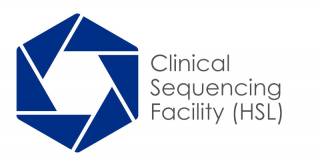
What the facility is
UKAS accredited diagnostic laboratories providing state-of-the-art pathogen genome sequencing and analysis for clinical application.What we are offering
How to access
Affiliated with the HSL Infection Sciences and Molecular Pathology departments and the UCLH APDU, the AMR pipeline is designed to support pathogen sequencing, metagenomics, microbiome and RNA sequencing for the purpose of evaluating and translating new diagnostic methods for use in clinical pathology. In addition the facility will support local and national clinical trials as well as third party activity from pharmaceutical, contract research and other industrial partner organisations.To access the service please visit the HSL website or contact via e-mail (Precision-AMR@hslpathology.com) or post:
Health Services Laboratories
1 Mabledon Place
London
WC1H 9AX- Clinical Sampling Laboratory (CSL)
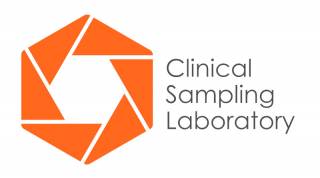
What the facility is
We have established a facility to obtain biological samples from patients or healthy volunteers participating in research studies, and to undertake the immediate laboratory processing of these samples for storage before being transferred to the laboratories undertaking the research.What we are offering
- We support investigators to undertake applications for regulatory approvals of new studies.
- We support investigator applications for access to residual diagnostic samples held by the UCL Infection DNA Bank, and to recall participants contributing to the Infection DNA Bank for secondary studies.
- We provide research nurse time, and access to the Clinical Sampling Laboratory, for clinical review and biological sampling of study participants.
Procedures we can undertake:
- Consultation and questionnaires
- Blood samples, upper respiratory tract swabs, GU swabs
- Antigenic challenges for skin biopsies and skin blisters
- Basic physiological observations.
Potential in future:
- Induced sputum
- Human challenge studies
For further information on what can be offered, please visit the Infection Clinical Research hub. E-mail Michelle Berkeley (m.berkeley@ucl.ac.uk), or for DNA Biobank enquiries e-mail Dr Vicky Enne (v.enne@ucl.ac.uk).- Translational Data Science Group, across UCL,UCLH and GOSH
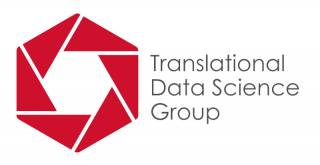
What it does
The group will enable health records access for infection research projects and service improvement across UCL, University College London Hospitals (UCLH), and Great Ormond Street Hospital (GOSH).What we are offering
- UCLH: Experimental Medicine Application Platform (EMAP)
An integrated platform for bringin digital research and innovation to the bedside using real-time data from EPIC. - GOSH: Digital Research Environment (DRE)
The Digital Research Environment (DRE) provides the technological infrastructure to facilitate undertaken at GOSH. The DRE is supported by the Data Stewards Team and enables GOSH to capitalise on modern digital developments such as artificial intelligence and clinical decision support algorithms, all within a secure web-based research platform. - UCL: Software development (up to 0.5 FTE time of software developer available)
Design reviews
Code reviews
Version control training
Training on automated testing
Code clinic (troubleshooting of code)
Who it is for
How to access
Supporting academic and clinical researchers using clinical data.- UCLH/ UCL: Email for meetings; s.piatek@ucl.ac.uk
- GOSH: Drop in sessions: every Wednesday 12-4pm and Fridays 8am-12pm; email DREProjects@gosh.nhs.uk
Who to contact
- UCLH/ UCL: Stef Piatek, s.piatek@ucl.ac.uk
- GOSH: John Booth, john.booth@gosh.nhs.uk; web, www.goshdrive.com/digital-research
- UCLH: Experimental Medicine Application Platform (EMAP)
- Antimicrobial Pharmacodynamics Hollow Fibre Laboratory
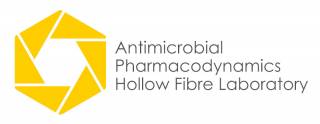
What the facility is
The Hollow Fibre Infection Model (HFIM) provides a closed system where organisms can be exposed to repeated fluctuating antimircobial concentrations replicating those seen in vivo. It can be used for dose ranging, drug combination testing and investigating the dynamics of resistance development or suppression with repeated administrations.What it offers
- HFIM experimental design including pharmacokenetic simulations, preliminary Minimum Inhibitory Concentration (MIC), synergy and time kill testing.
- Preclinical HFIM pharmacokenetic/ pharmacodynamic experiments for: dose ranging, synergy testing at clinical concentrations, assessment of treatment duration.
- Antimicrobial pharmacokenetic/ pharmacodynamic modelling of pre-clinical and clinical data.
- Support for clinical trials requiring the above.
- Help for setting up projects including Point-of-Care Tests involving the above.
How to access
hfim@ucl.ac.uk
 Close
Close

